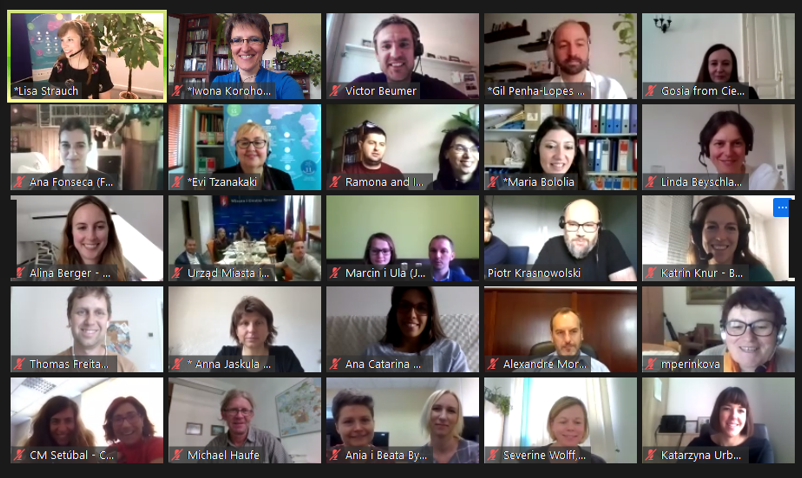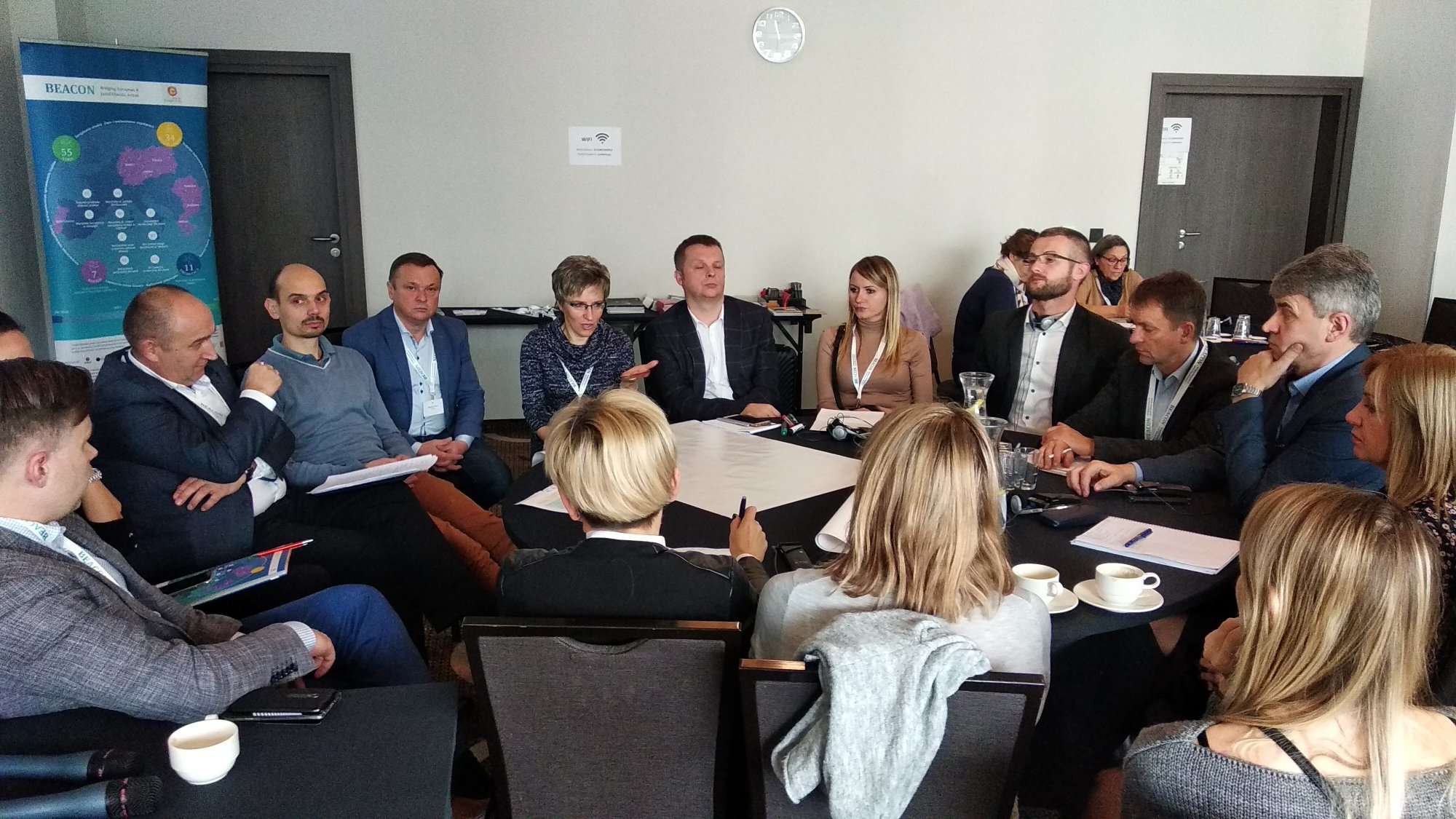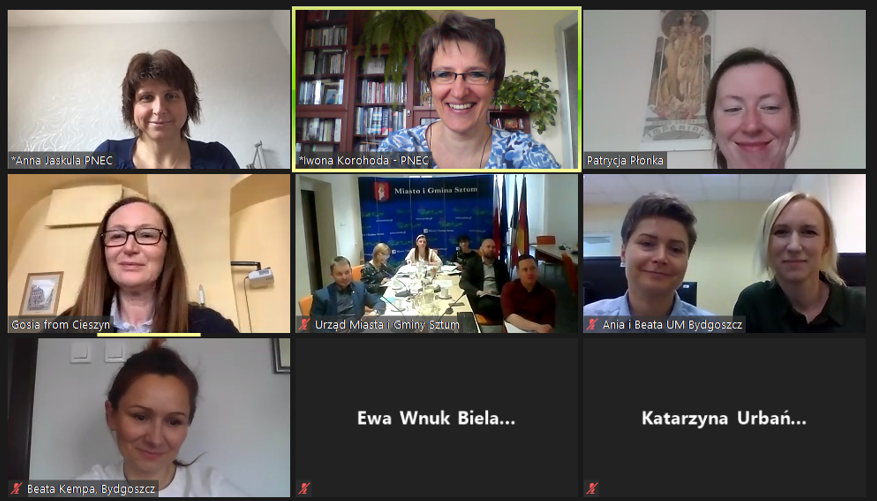BEACON Interview: Climate action in the new Covid-19 reality
The interview with Iwona Korohoda from the Association of Municipalities Polish Network “Energie Cités” (PNEC) was conducted by Katarzyna Goszcz, who is part of the EUKI Project Central Eastern European Climate and Energy Policy Scholarship for Journalists.

Have the Covid-19 restrictions changed the way of thinking about or work on projects such as BEACON?
I think that the situation we have all found ourselves in has had a significant impact not only on the way of life for each of us, but of course also on the operation of our organisations and the BEACON project itself. Of course, all face-to-face meetings, round tables, conferences or study tours in BEACON had to be either postponed or cancelled. Local decision-makers are now more involved in crisis situations and in solving ad hoc problems, so climate issues, which in many cases have not been a priority for some municipalities, have been pushed to the background. This, of course, makes it more difficult to take up these topics and involve local governments in the project activities. Although many safety measures are gradually being relaxed, it is likely that many of our meetings and events will not be able to take place as planned. Restrictions related to travelling abroad also have an impact on this. For these reasons, it is necessary switch to online formats. We all must learn to move around in this virtual space in order to somehow try to conduct our project activities and continue our work on climate action.

The technologies we use today are not necessarily new, but we are using them more frequently or learning to use them in better ways. What new opportunities have emerged with the Covid-19 restrictions?
It’s true, today we certainly have better options than we did even just a few years ago. New programs and online platforms make this kind of communication more attractive. Our project meetings consisted of exchanging experiences and learning from each other. Such activities brought this additional element, which is very difficult to replace online: direct contact and conversations as well as backstage discussions and exchange of experiences amongst participants during e.g. study visits. All this must be transferred to virtual spaces and replaced by something else. It is a big challenge and probably an opportunity to discover new tools and skills. The formula of one-way message transmission common in webinars works very well, but to prepare interesting workshops, interactive exercises, and to work towards a joint conclusion, web tools are often less effective so a great field for new discoveries is created in this space.
I know that the BEACON project partners have recently prepared and conducted a workshop on nature-based solutions for more than 50 people. What are your main takeaways from this event?
My first conclusions are that preparing a virtual event is completely different from preparing an in-person event. For all of us it was a new formula and a lot of work was required to prepare the technical side. In addition to ideas on how to diversify the online workshop, there is a need for some staff to technically monitor the whole event, which requires a very detailed programme and the division of many roles among all team members. The first feedback and evaluations of our participants turned out to be very positive – apart from good organisation and an interesting programme, some people emphasised the benefits of reduced travel, which reduces CO2 emissions. The greater discipline required of the organisers is also beneficial for the participants because the content of the individual sessions must be well thought out and executed and presentations cannot be very long. The fact that the meeting takes place online also makes it possible to invite experts from various places, for whom participation does not involve travel and accommodation. Thus, a very interesting and diverse panel of experts can be assembled.
However, many people point to direct contact as an irreplaceable factor. We are social creatures – the need for direct contact is natural and cannot be transferred to virtual spaces. Direct contact makes us more open, more willing to express our thoughts and engage in conceptual work. Body language and the freedom of face-to-face conversation are very important.
We also notice difficulties in virtual meetings due to the fact that participants can easily engage in other activities simultaneously. If they attend a meeting from their office, they may answer the phone at the same time or their boss comes in with a request. These interruptions are distracting. Urgent official commitments sometimes prevail over virtual meetings.


Have you noticed any connection between the Covid-19 restrictions and the perception of environmental protection?
I think that they will directly influence our contact with local governments and the way we organise future events. It’s hard to say how the situation will develop. At the moment, issues related to the functioning of the municipality, ensuring safety and control over subsequent diseases consume the attention of local governments and climate issues are not the top priority. Especially if there are economic problems and possible additional restrictions related to Covid-19.
On the other hand, people started reflecting more on the environment in which we live. I believe this experience will make us think more about the future, about the climate, about the greenery around us, about air quality, and about energy consumption. The need for new jobs related to the economic crisis is a great opportunity for green jobs and technologies. Not being able to travel has revealed the amount of CO2-emissions that actually comes from transport and that it may be possible to change a district, municipality, or city in such a way as to effectively reduce these emissions. There are many good lessons to be learned in terms of urban development and the practical application of climate-friendly solutions. Hopefully, on a national, European and global scale, Covid-19 will bring reflection on how we can better care for the world around us. We also now appreciate our immediate surroundings and the environment around us even more, which will certainly push encourage municipalities to take more decisive climate action.
